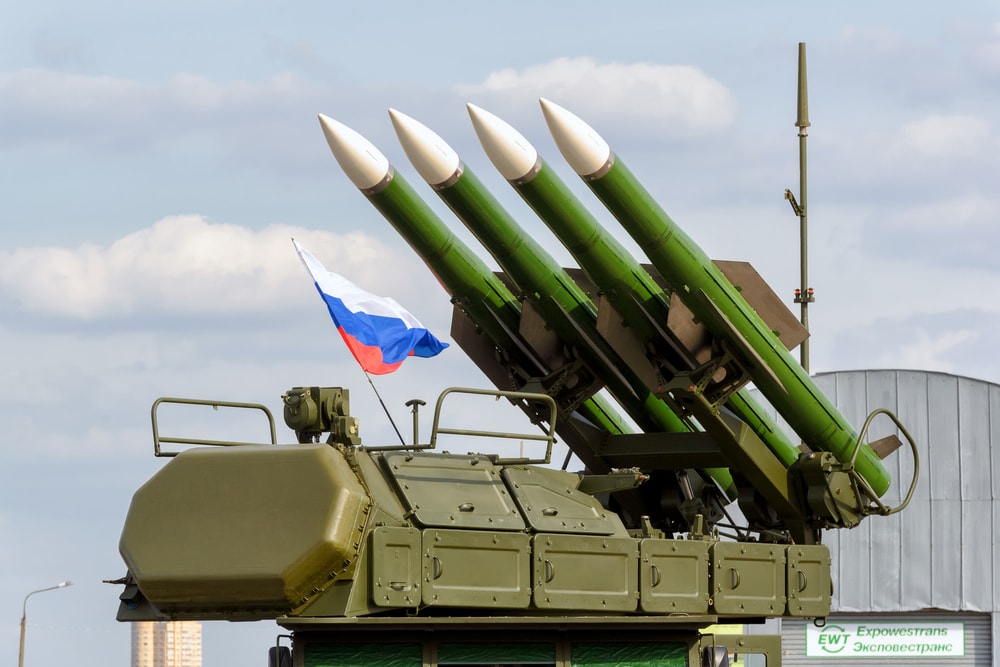
In 2010, an Israeli professor made some dramatic war predictions. He foresaw a huge military conflict erupting around the year 2020, with a resurgent Russia and the US involved. It would be the largest regional war in decades, he said.
The professor described this great war in detail. He wrote that missiles will rain down on cities, and described large-scale ground maneuvers and deep incursions into hostile territory.
In 2010, this seemed like a wild forecast. But amazing changes soon started to reshape the geopolitical scene, just as the professor projected. By 2020, the world was a different place, but then came the Coronavirus.
For long months, many countries were preoccupied with COVID-19 and avoided major military moves. But this did not last long. By the end of 2021, tensions were skyrocketing again, just as predicted.
The professor was right about many things, but he got one key piece of the puzzle wrong. He expected the large war to break out in the Middle East, not in Europe.
Calculating war cycles
The professor is still around. He heads the graduate program in Information and Communication Technology at Bar-Ilan University near Tel Aviv. He is also Israel’s first bona fide futurist, with a PhD degree in Future Studies from the University of Minnesota. His name is David Passig.
When Professor Passig published his book, 2048, the Middle East was a very different place. The accuracy of the predictions that have come to pass since then is stunning. Overall, the scenario he described has largely played out just as he expected, but a regional war has not erupted, for now.
Passig foresaw Syria’s collapse as early as 2006, long before it started to fall apart. In his 2010 book, he warned that US-Russia tensions will grow over the next decade and that Moscow will become a more dominant force. All these predictions materialized within years.
But how did Passig predict it? The professor says that the future remains uncertain, but complex mathematical models can help us come up with plausible scenarios.
Passig’s war predictions are partly based on researching historic cycles and calculating the frequency of global, regional and local wars. He discovered that all three cycles converge around the year 2020, with Israel getting involved in a war with regional and global implications. As it turned out, it was not Israel, but Ukraine.
However, while all eyes are on Europe for now, the Middle East may become the next global military hotspot.
Israel prepares for big war
Israel has been inching toward a large war for the past few years. In 2019, Prime Minister Benjamin Netanyahu told senior officers that the IDF must prepare to fight on multiple fronts. In 2020, the army held its largest war exercise in years with a focus on the northern front.
Israel continues to wage a hard-hitting bombing campaign to stop Iran’s military buildup in Syria, while keeping a close watch on Tehran’s nuclear project. As the friction grows, so does the likelihood of an all-out war.
The conditions for a direct clash with Iran are “riper than ever,” the Jerusalem Institute for Strategy and Security warned previously. Some defense officials say that the intense IDF strikes in Syria will eventually trigger Iranian reprisals and spark a broader conflict.
Elsewhere, Iran’s plans to produce precision weapons in Lebanon add fuel to the fire. As Hezbollah converts more rockets to precise missiles, Israel nears the point of launching a preemptive strike. Fighting on the tense Israeli-Lebanese border can also escalate into a major clash.
Behind the scenes the IDF accelerated its war preparations, holding numerous exercises and fine-tuning its combat plans. Under Chief of Staff Aviv Kochavi, the army also adopted a more aggressive doctrine and boosted its capabilities and firepower.
Now, as Europe enters a new era of war and instability, Israel is on guard for escalating military threats closer to home. With the world in growing disarray, the shock waves from Ukraine could spell trouble for the Middle East as well.
- SEO Powered Content & PR Distribution. Get Amplified Today.
- Platoblockchain. Web3 Metaverse Intelligence. Knowledge Amplified. Access Here.
- Source: https://israelradar.com/the-man-who-predicted-middle-east-war-in-2020/



